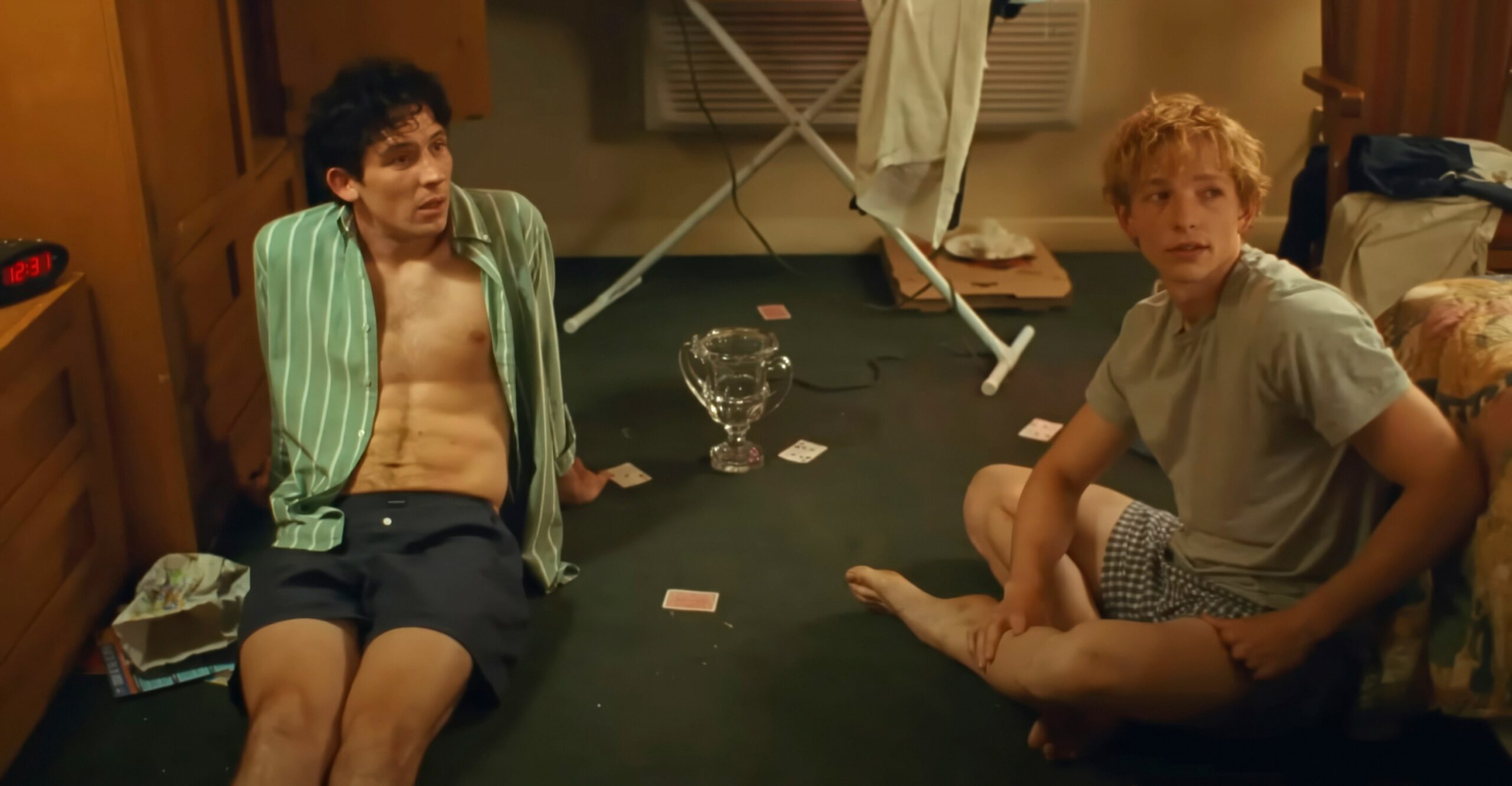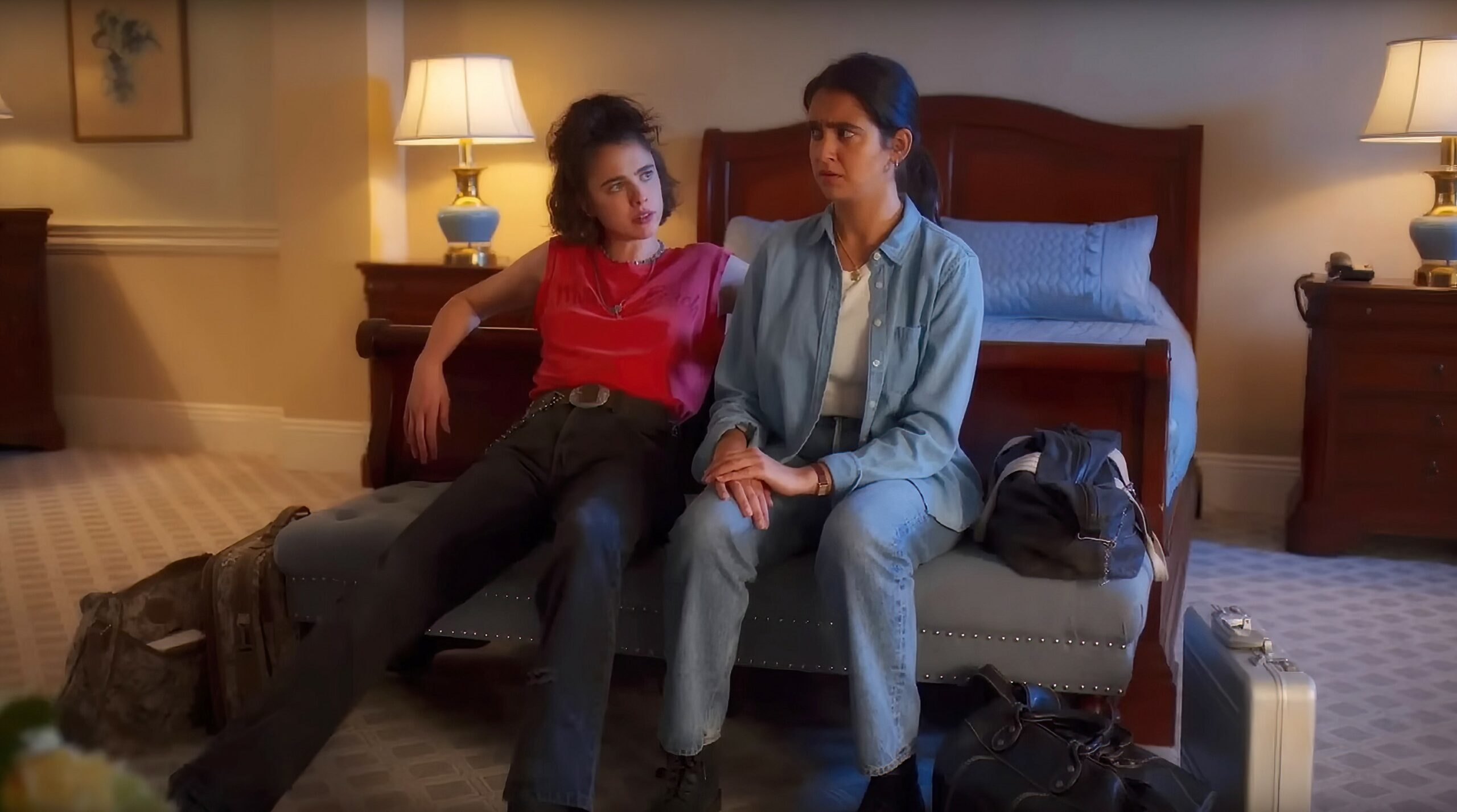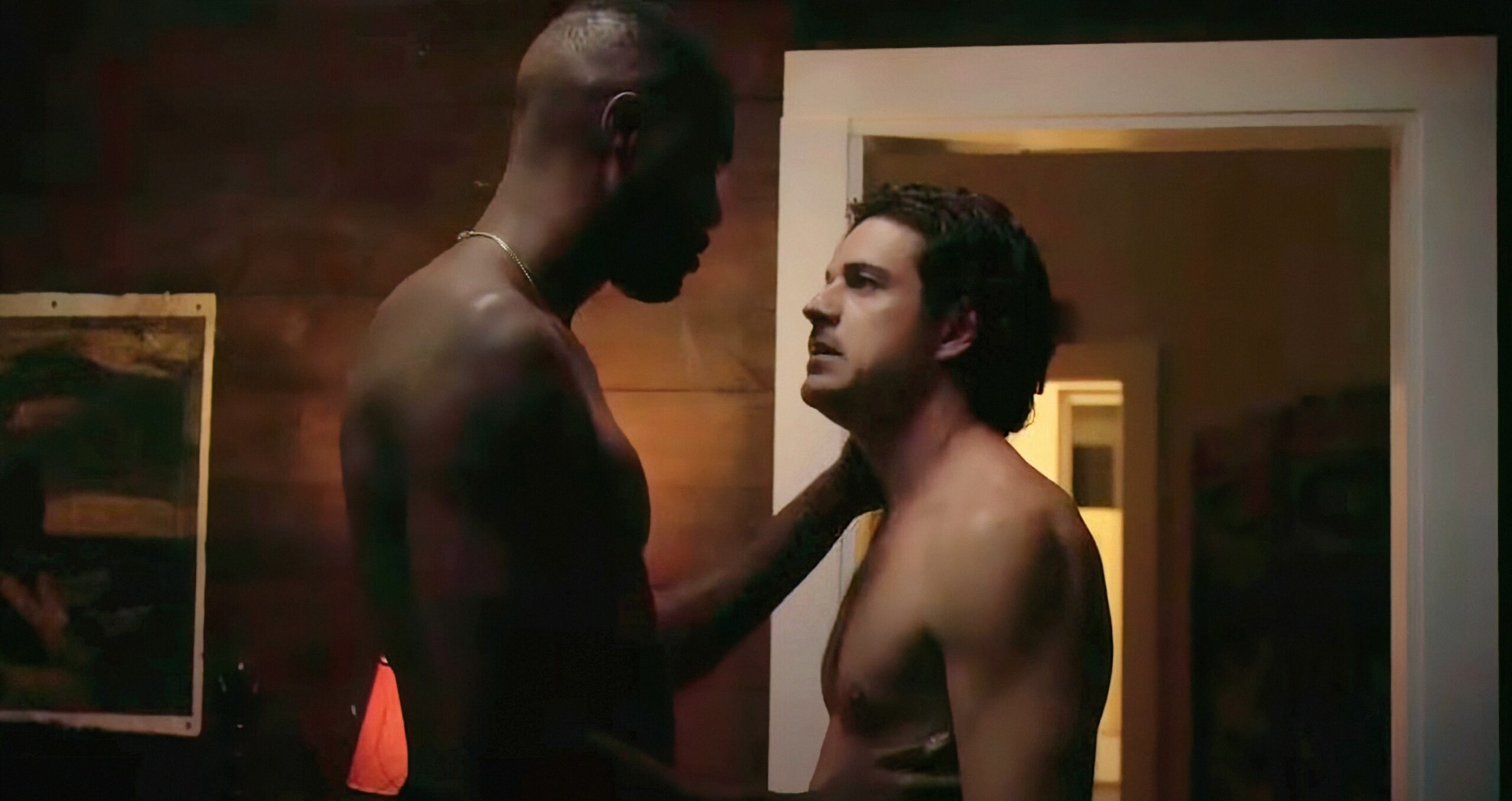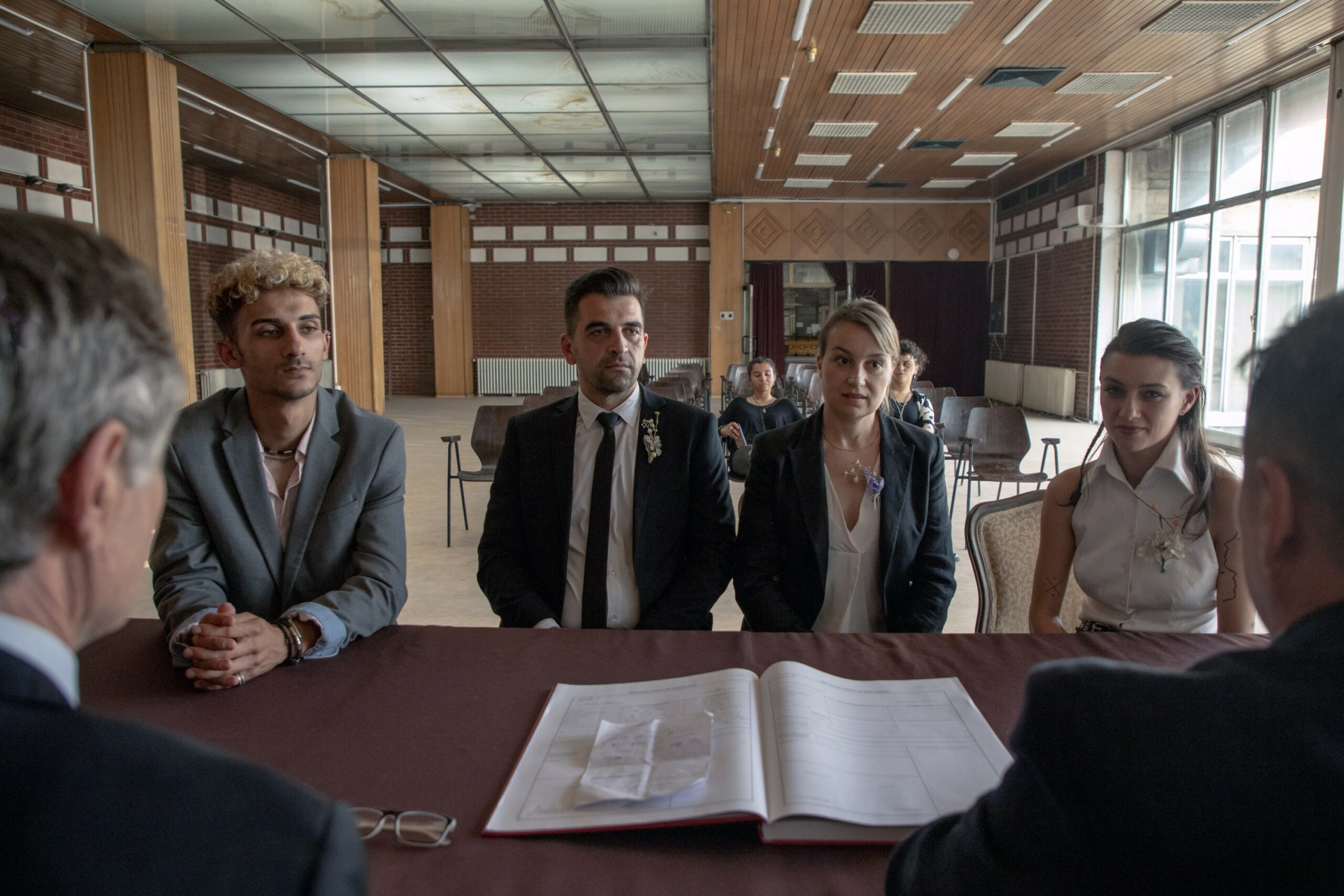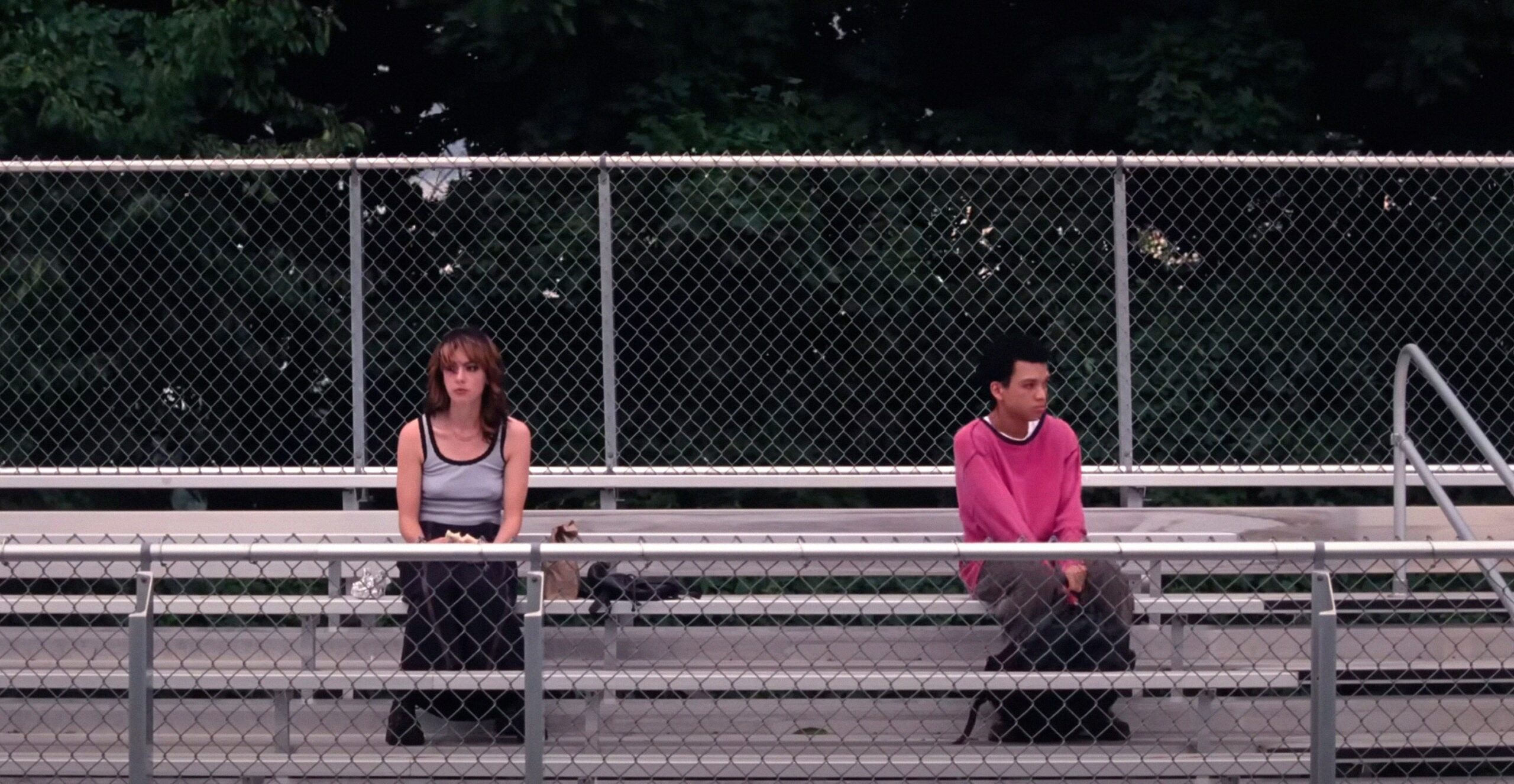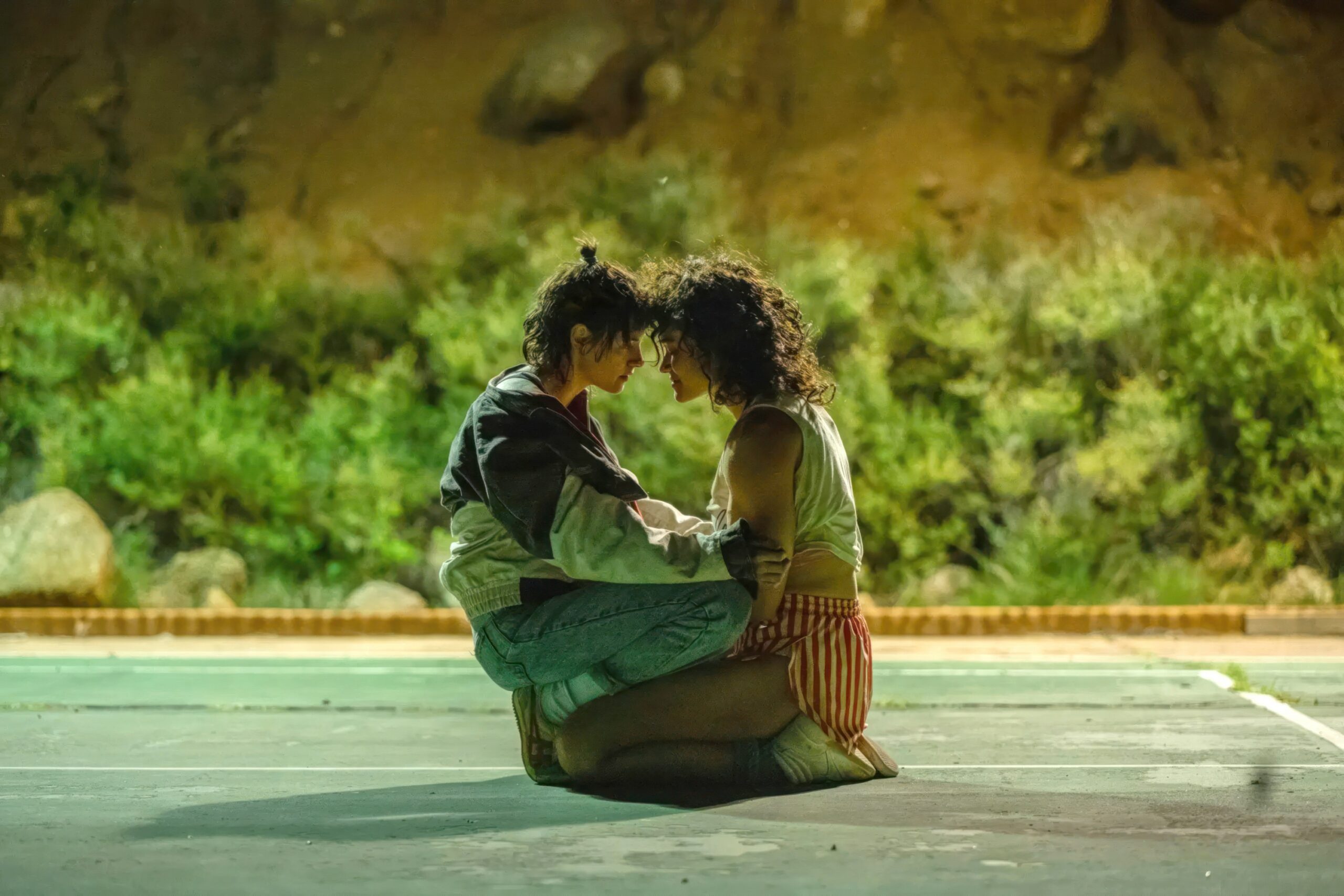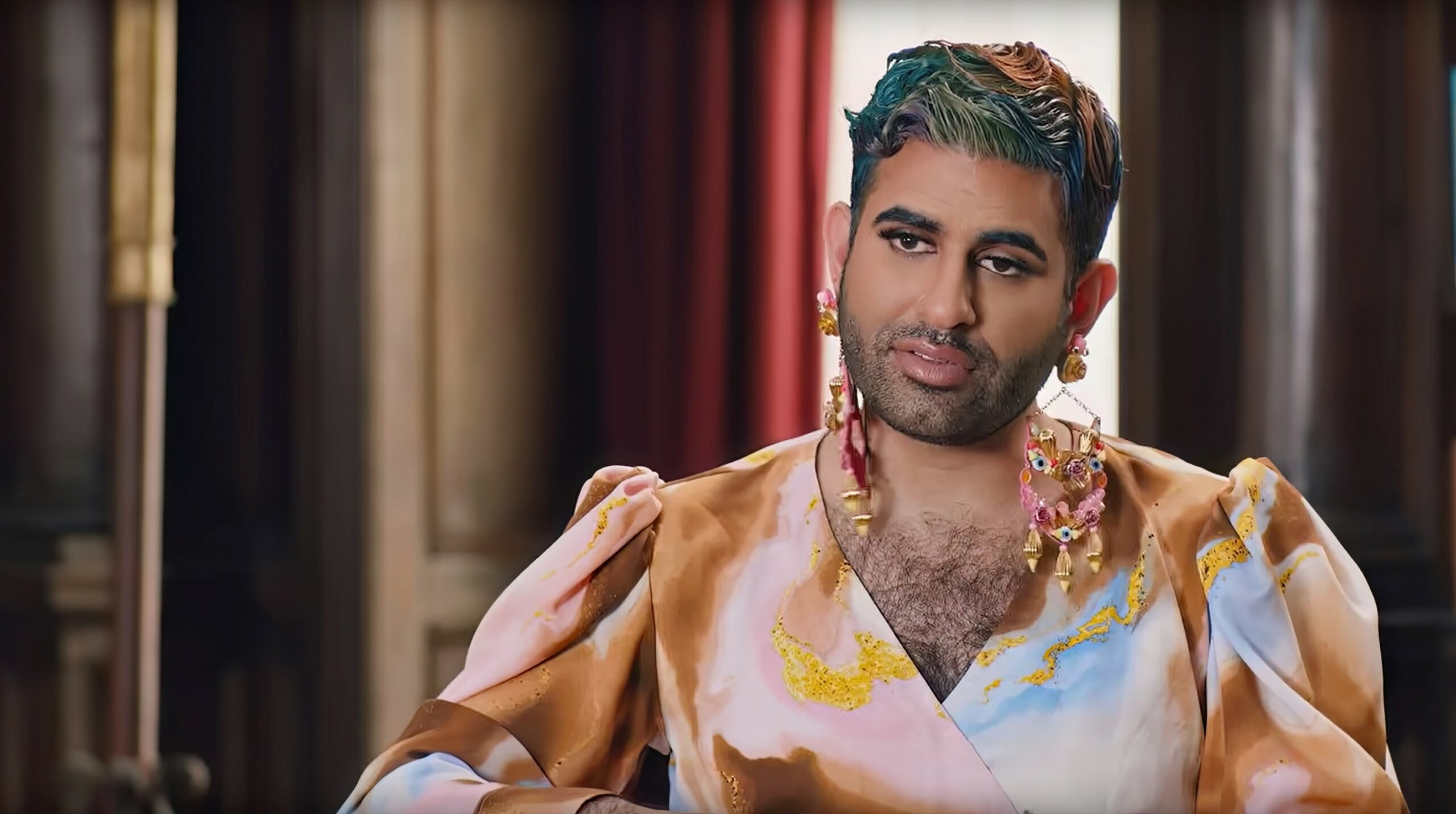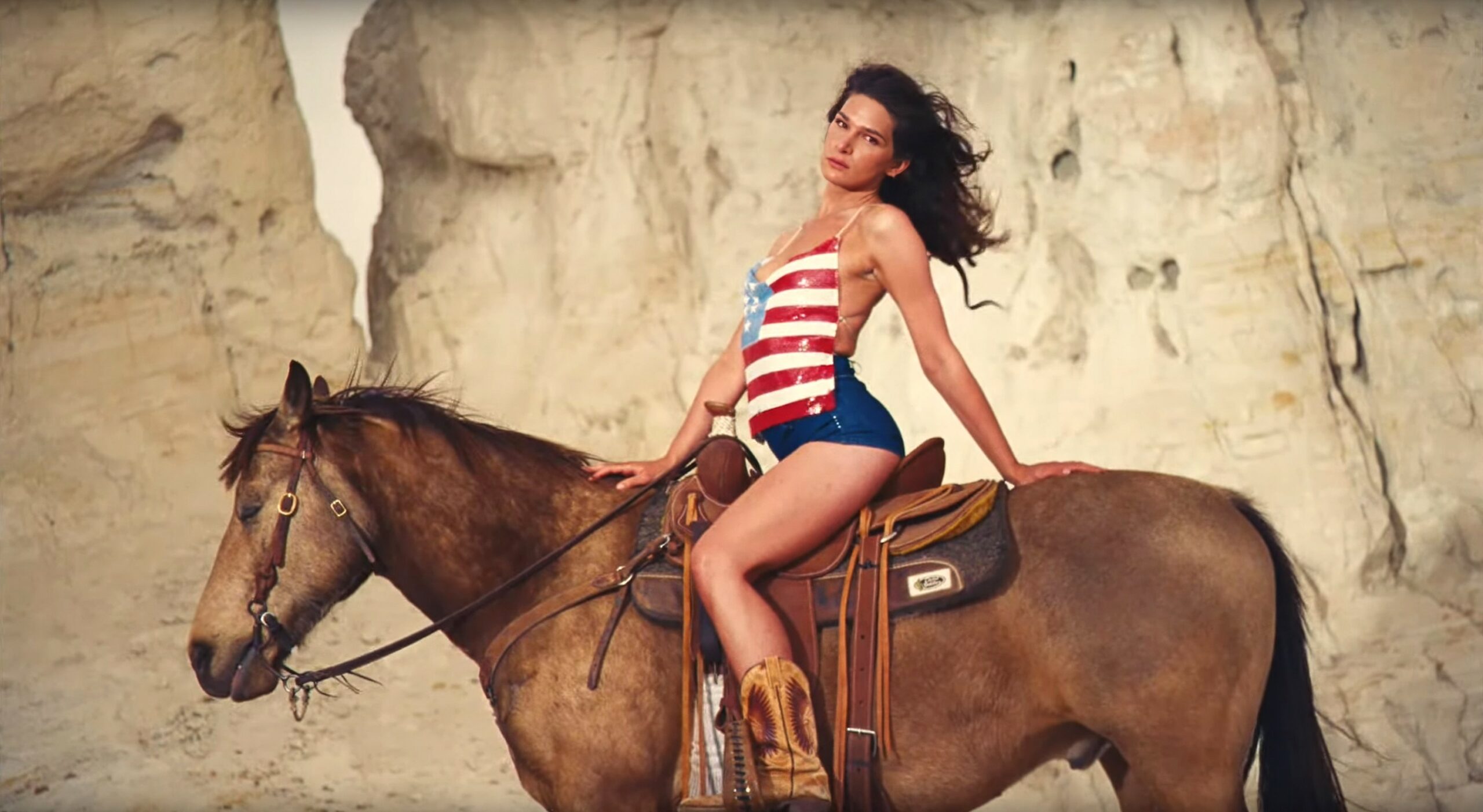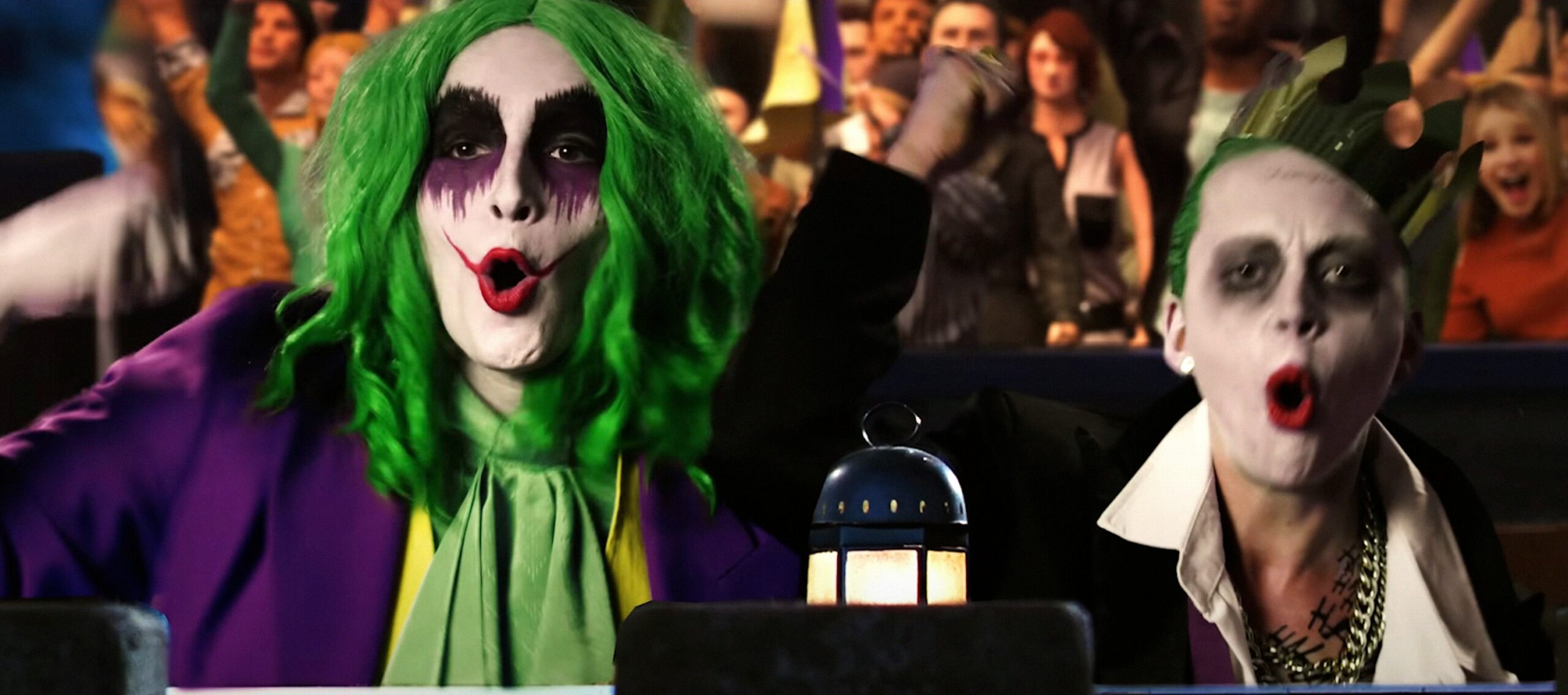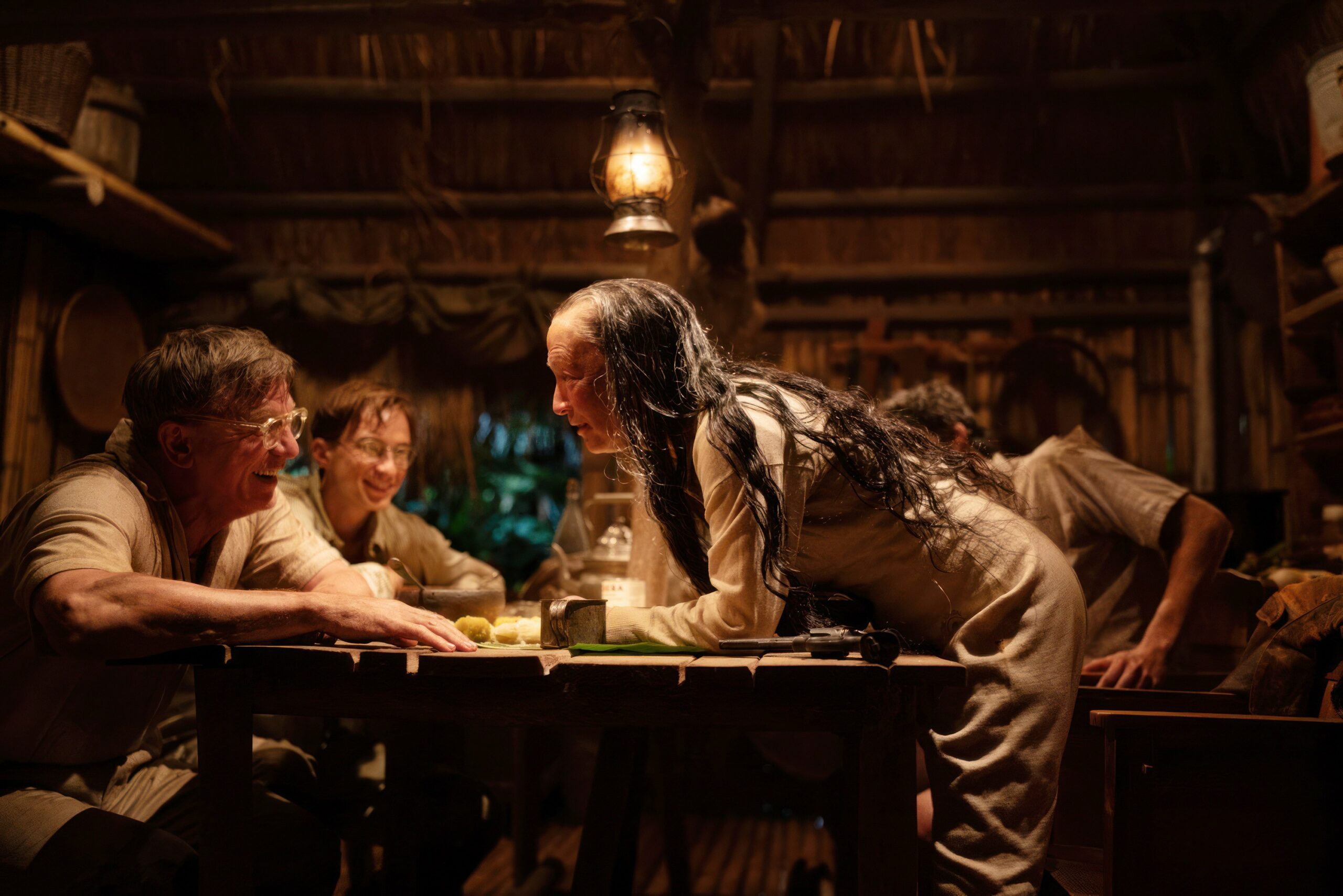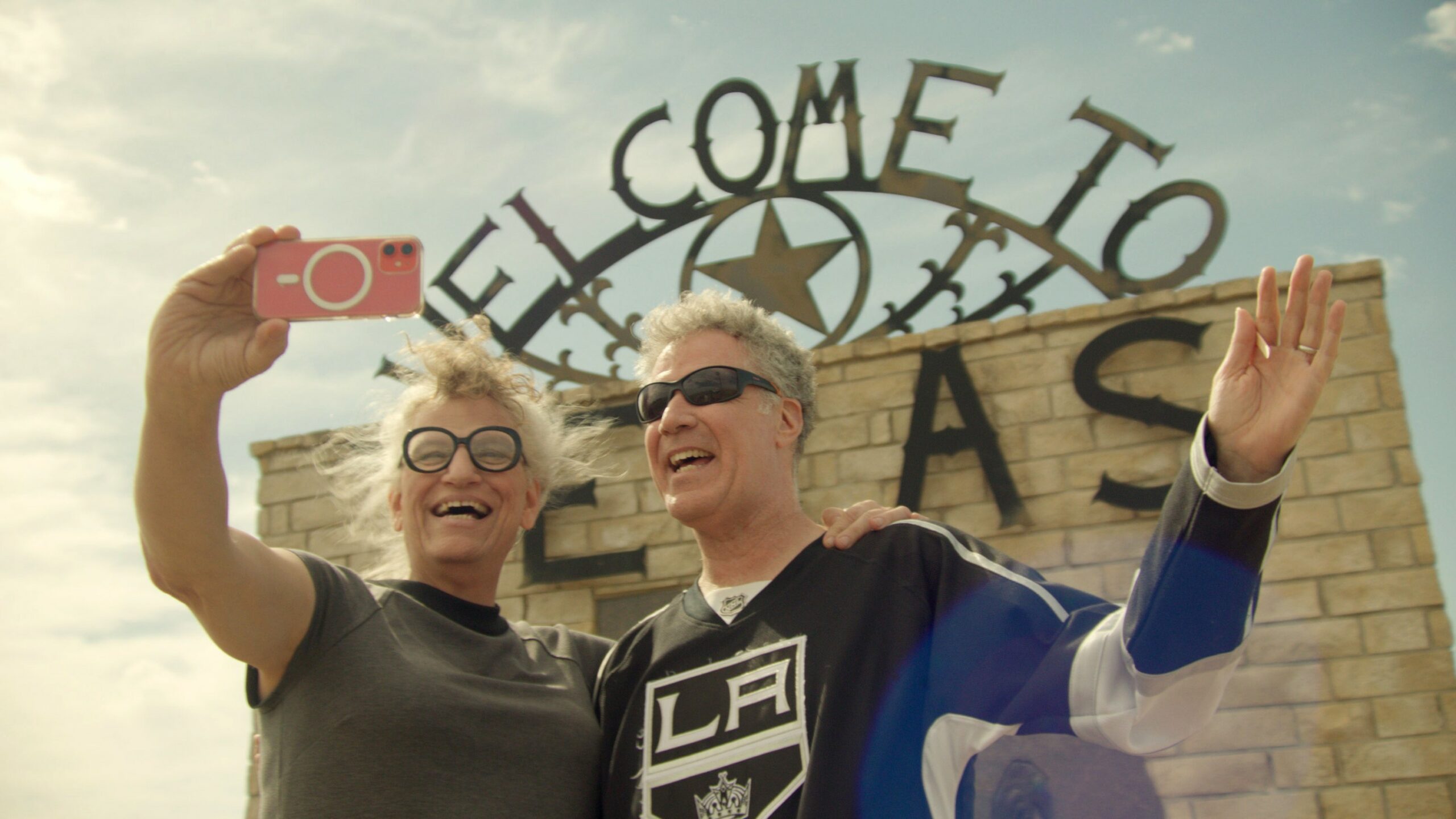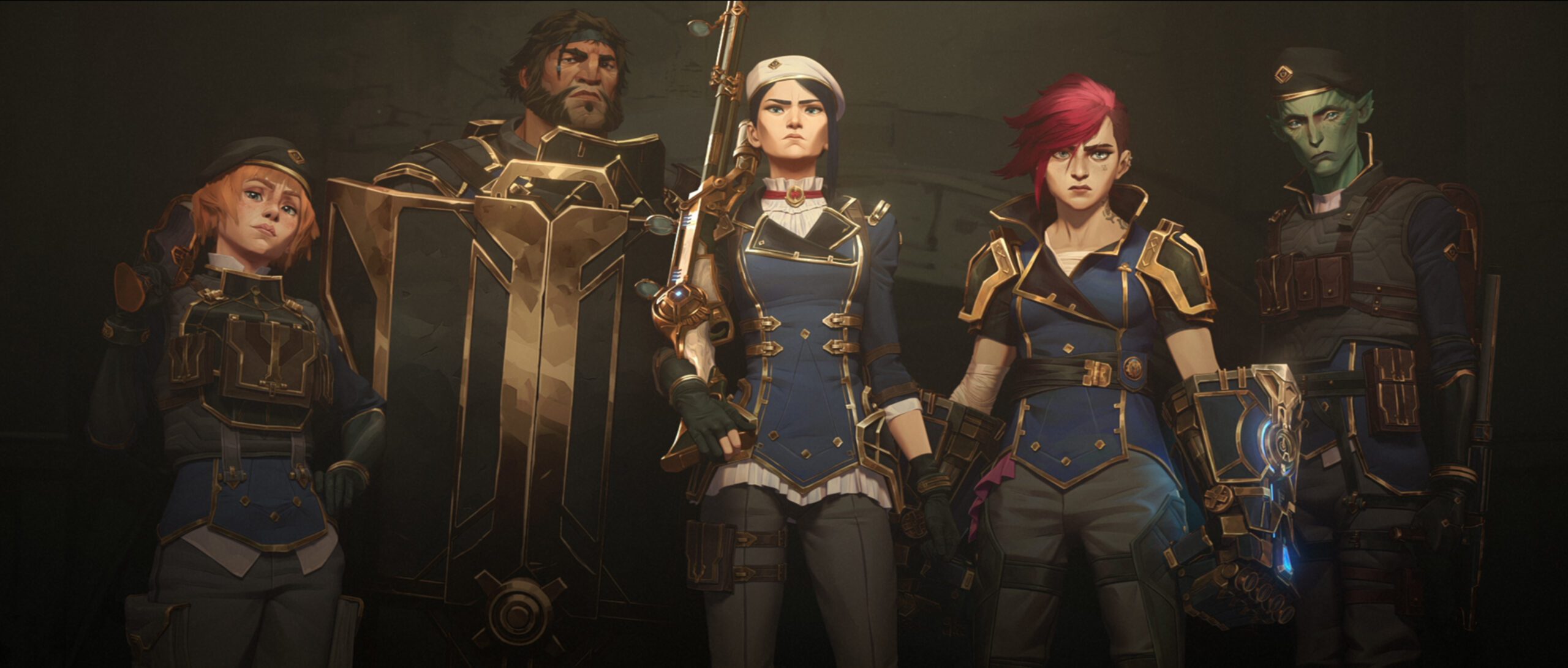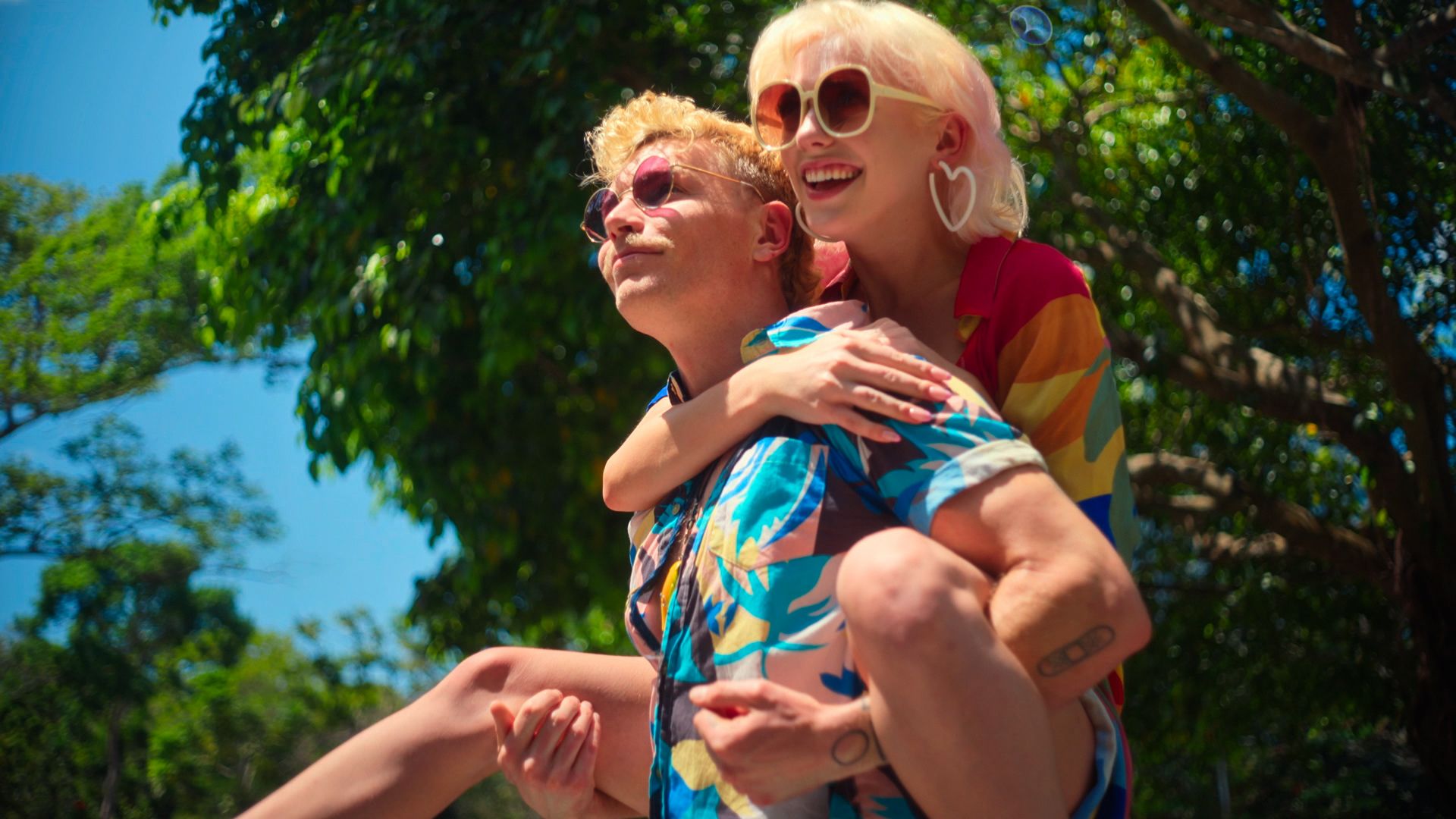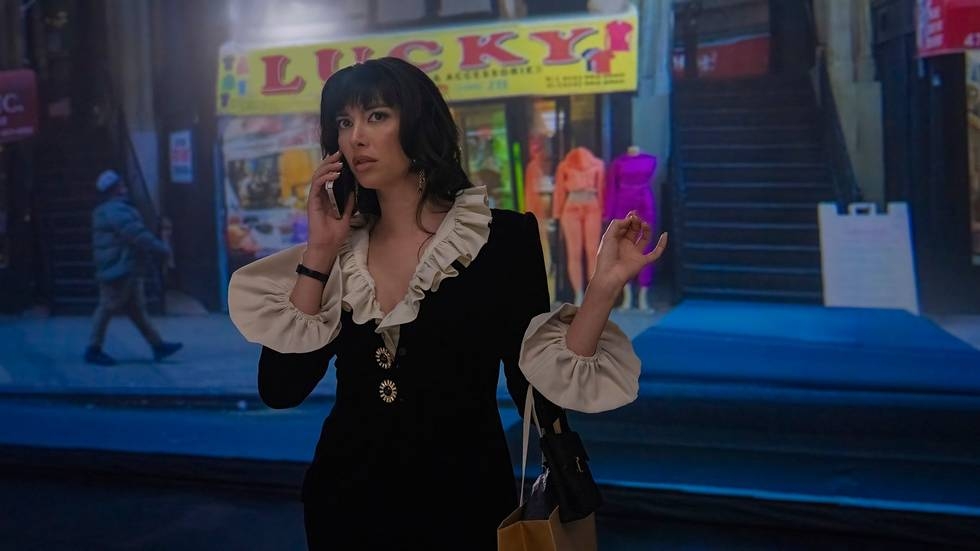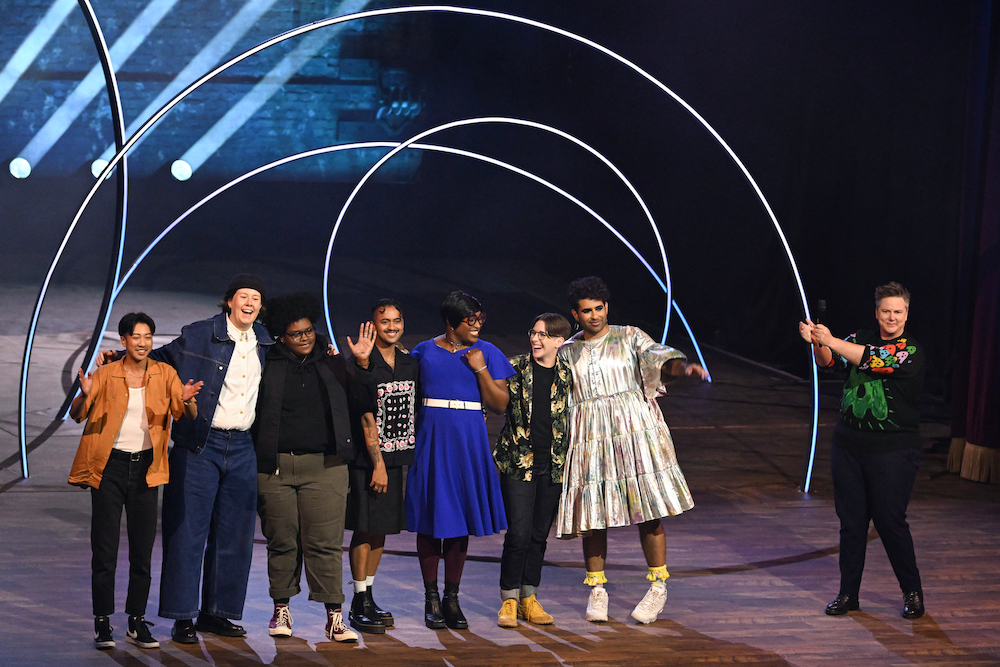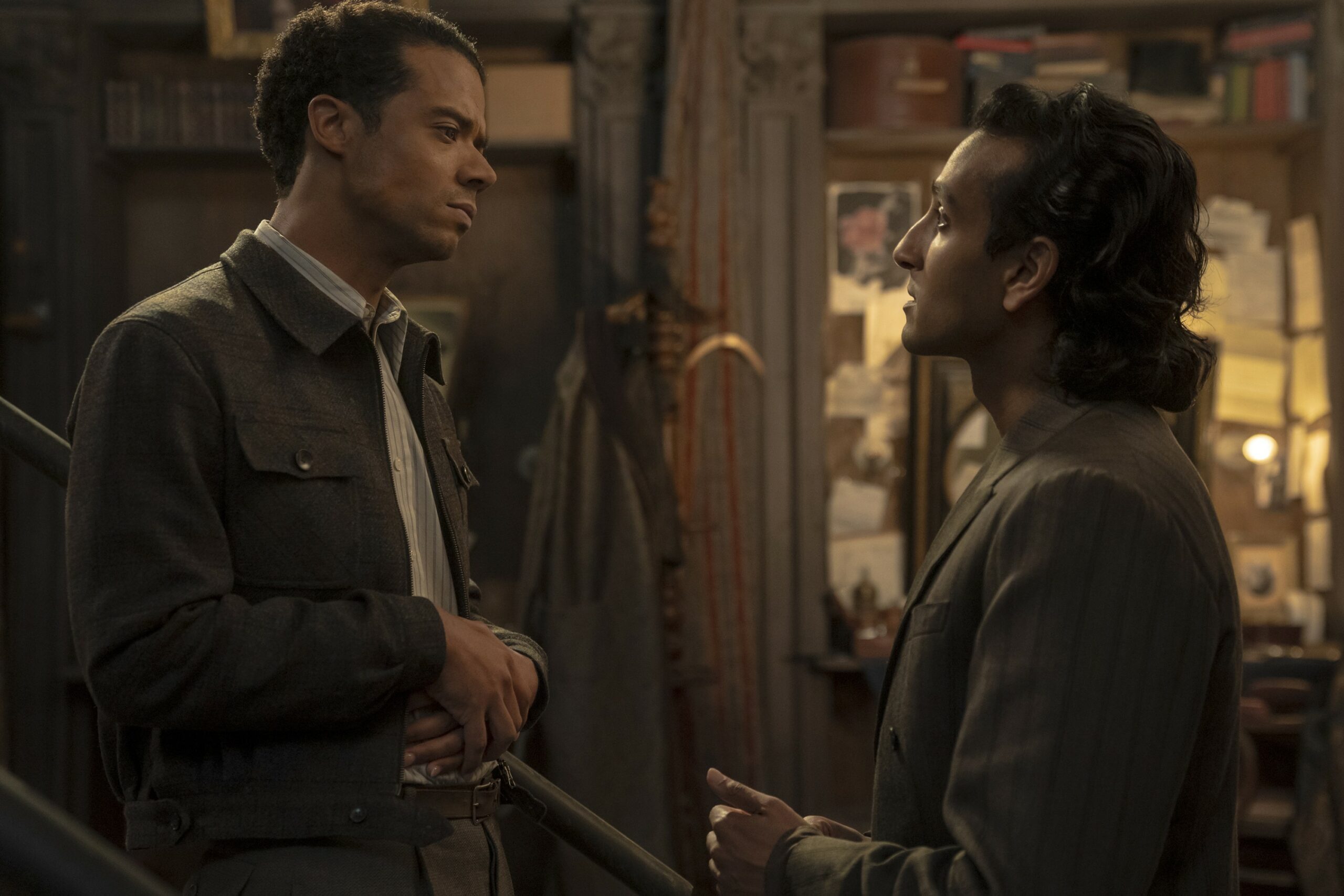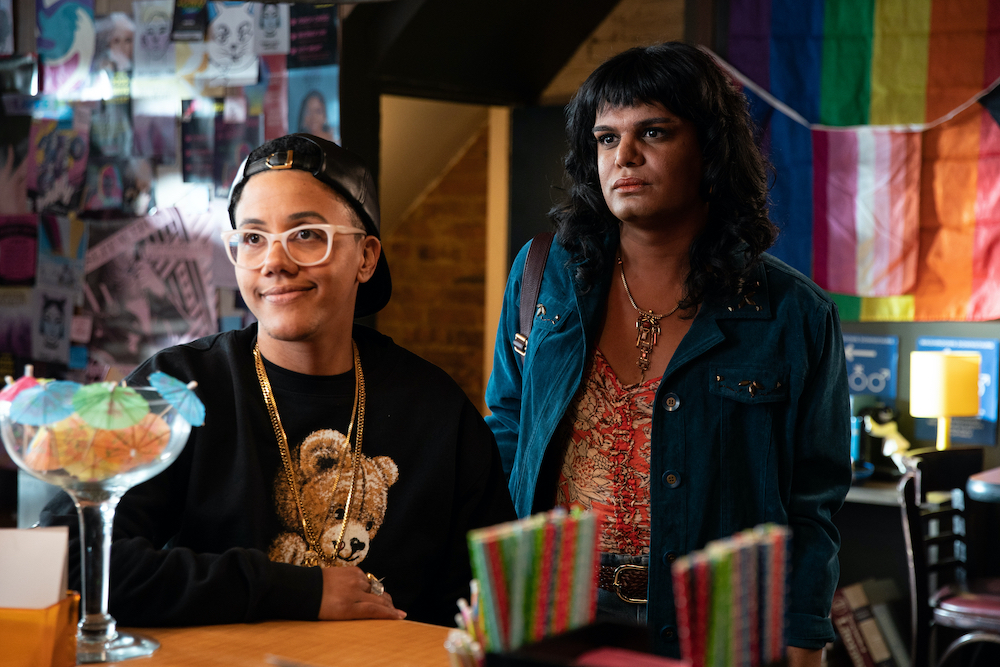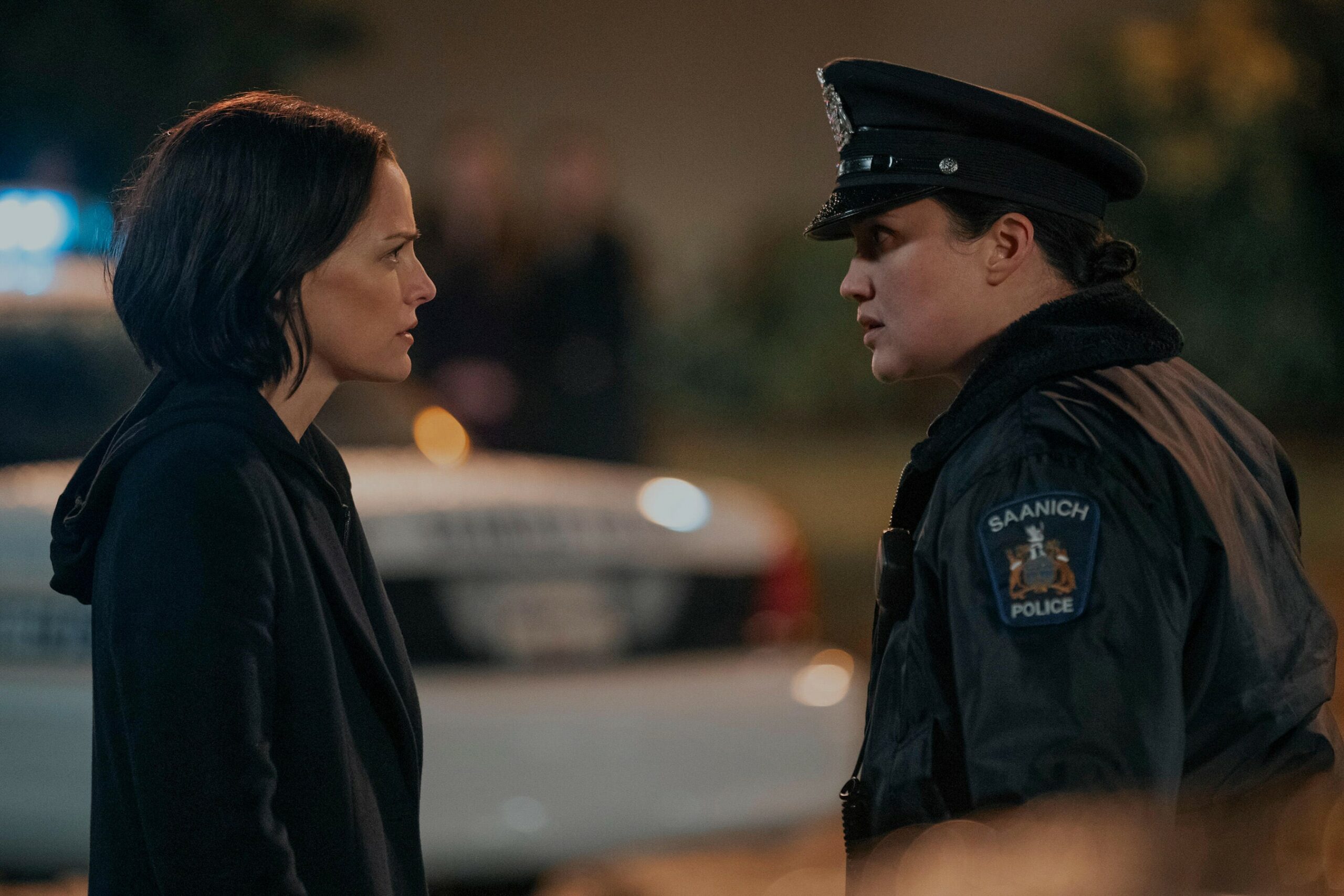Look over the menagerie of LGBT movies and TV shows released in 2024 carefully enough, and you’ll find as many hidden gems as you will worsening cracks. In others words, there’s good news and bad news — but in the year’s overall impressive lineup, also a glimmer of hope.
On the small screen, the seemingly unending aftermath of the streaming bubble burst from 2022 saw the “Cancel Your Gays” trend push forward as LGBT series ended abruptly, and fewer projects were green lit to take their place. Stand-up comedy specials, particularly those at Netflix, continued to platform contradictory political voices with hugely disparate views about human rights — which created some bizarre situations, for good and for bad.
There have been reported declines in onscreen queer representation across film too, albeit not as stark as those impacting actors on television. Still, looking back at a year that included several remarkable success stories from throughout queer cinema, the silver screened side of the industry certainly seems more hopeful heading into the new year.
In 2024 LGBT movies, “The People’s Joker” filmmaker Vera Drew saw her embattled superhero satire finally get a limited theatrical release before it earned even more recognition and awards. Meanwhile, Luca Guadagnino premiered not one, but two buzzy gay titles with “Queer” and “Challengers” (each addictive enough to demand inclusion on the forthcoming list).
As for documentaries, “Will & Harper” — a portrait of a friendship and the state of transgender acceptance across the U.S. — dazzled out of Sundance alongside several other extraordinary unscripted queer films to come out this year. The less known “Lover of Men: The Untold History of Abraham Lincoln” is similarly remarkable (and also made our curation of the best LGBT movies and TV shows below).
The following collection is an eclectic mix of victories in a year that boasted as many moments of satisfaction as it did shocks and surprises. Films and their directors are listed before TV shows/seasons and their home streaming platform and/or network. Everything is sorted alphabetically by title with no consideration given to comparative quality. We don’t need that right now.
With editorial contributions by Ryan Lattanzio and Erin Strecker.
-
“Challengers” (dir. Luca Guadagnino)

Image Credit: ©MGM/Courtesy Everett Collection In the greater pantheon of queer works from Luca Guadagnino — including “Call Me By Your Name” and, yes, “Queer” (also on this list!) — “Challengers” lands on the subtler side. It also made tennis 2024’s horniest and most meme-able racket sport, and if that’s not gay, then I don’t know what is.
What begins as a clandestine flirtation with polyamory between three extraordinary tennis players reveals itself to be a story of competitive love that’s poly, yes — but also heavily heteronormative. However, it has a redemptive climax that, while mostly about Zendaya getting to see a great game of tennis, can be read as an extraordinary story of two near-soulmates (Mike Faist and Josh O’Connor) settling an adversarial tension and/or unrequited connection.
A shrewd filmmaker with a melodramatic vision that leaps off the screen here, Guadagnino presents a stylish and sexy sports drama/relationship puzzle box about long-felt betrayal and manipulation that’s unfathomably entertaining. It was a crowd-pleaser that did well at the box office, and New Rochelle deserves major representation come game time at the Academy Awards. —AF
-
“Drive-Away Dolls” (dir. Ethan Coen)

Image Credit: ©Focus Features/Courtesy Everett Collection Although it’s directed and co-written by Ethan Coen, “Drive-Away Dolls” was a major victory for fans of the quiet cinematic titan Tricia Cooke. The Coen brothers’ longtime editor (who, yes, is also Ethan’s spouse) brings her memories of queer culture from the late ’90s to this effervescent buddy comedy — delivering a time capsule that will no doubt hang on with the right fans thanks to its charm, at once immediately apparent and enduringly heartfelt.
For this lesbian roadtrip adventure, Margaret Qualley and Geraldine Viswanathan star as Jamie and Marian: two friends who embark on an impromptu post-breakup trip and find themselves tangled in a mysterious conspiracy. Any lesbian worth their limerence can tell where that odd-couple relationship arc is headed, but Coen and Cooke paint unforgettable scenery alongside a centerpiece cameo from the perfectly placed pop icon Miley Cyrus.
A testament to shapeshifting actors, Qualley’s “Drive-Away Dolls” performance as a masc heartthrob stands in stark contrast to her hyper-femme presentation for 2024’s later “The Substance.” That horror film may be intensely straight-coded, but a double feature just might work as a small-scale case study in the she/her spectrum. —AF
-
“High Tide” (dir. Marco Calvani)

Image Credit: ©Strand Releasing/Courtesy Everett Collection Writer/director Marco Calvani’s seaside melancholy romance, “High Tide,” follows Brazilian immigrant Lourenço (played by Calvani’s actual husband Marco Pigossi) adrift in Provincetown from a bad breakup and amid an expiring visa. But the kindness of strangers — from Bill Irwin as the Cape Cod property owner who keeps Lourenço on in his guesthouse, to the tall and handsome Maurice (James Bland) who appears to him like a mirage on the beach — keeps him going in this easygoing, sexy drama where Lourenço finds himself single and in somewhat of a freefall as the summer nears its end. And the season is not without its messiness and melodrama.
As I wrote out of SXSW, “’High Tide’ is frank and honest about the often debasing mundanities of gay life in the PrEP era; one minute you’re getting pounded by a perfect stranger, and the next you’re sitting in a clinic under sterile bright lights and explaining yourself to a blank-faced nurse.” —RL
-
“Housekeeping for Beginners” (dir. Goran Stolevski)

Image Credit: ©Focus Features/Courtesy Everett Collection “Of an Age” director Goran Stolevski’s followup, “Housekeeping for Beginners,” is a chaotic portrait of a patched-together found family in North Macendonia, with a rowdy household as a microcosm for the country’s politically fraught melting pot.
For this true cinéma vérité tale — true in the sense that it shot on real locations, without rehearsals, and with many unknown actors — Stolevski had a lucky stroke of dream casting led by “4 Months, 3 Weeks and 2 Days” star Anamaria Marinca. She plays healthcare worker Dita, living in modern-day North Macedonia in its capital of Skopje with her Roma girlfriend Suada’s (Alina Serban) children and their friends. Now taking over the house, Dita promises her terminally ill partner that she’ll continue to mother her kids after death. But that brings its own complications once Dita’s live-in gay best friend Toni (Vladimir Tintor) is forced to register as the girls’ legal father to avoid separation. LGBTQ citizens of Macedonia, after all, lack the legal protections of opposite-sex couples, forcing this found family to find common ground under a divided roof.
Stolevski invites you into the panic and chaos of this found family’s plight, as well as their joys, and it is amazing what he achieves with his young actors, mostly first-time performers and scouted from open casting calls. —RL
-
“I Saw The TV Glow” (dir. Jane Schoenbrun)

Image Credit: Courtesy Everett Collection The best thing about the horror of “I Saw The TV Glow” is how uninterested it is in leaving things open to interpretation. Sure, Jane Schoenbrun’s second feature does technically cover its queer themes in a broader plot about escapism and obsession, following two teenagers — terrifically played by Justice Smith and Brigette Lundy-Paine — who develop such a fixation with their favorite “Buffy the Vampire Slayer” style TV show that it begins to feel more real than their bleak small town lives. But from the opening sequence in which Smith’s Owen plays under the background of a giant parachute the color of the trans flags, the obvious subtext is barely “sub” — it’s just the text. Schoenbrun’s film is a vividly haunting look at denial and self-loathing specifically in a gender context, as Owen’s nagging self-identity issues eat away at his soul. The unforgettable ending is both bleak and oddly hopeful, a look at how the truth lives within us even as we try to repress it. —WC
-
“Love Lies Bleeding” (dir. Rose Glass)

Image Credit: Courtesy Everett Collection Rose Glass went for broke with the script for “Love Lies Bleeding” (co-written by Weronika Tofilska), and she hit the jackpot casting Kristen Stewart and Katy O’Brian as her lovestruck stars. In this sweaty-dusty New Mexico crime thriller — set in the late 1980s with a body horror twist! — the lesbian daughter of a dangerous man (Stewart) falls for a bisexual bodybuilder (O’Brian) on her way to a major competition in Las Vegas.
When domestic abuse, steroid abuse, a poorly positioned coffee table, and Dave Franco collide, the hope of the women’s passionate new love breaks into a cold sweat. The breakneck terror that follows is one of A24’s best releases from the past year, and combines the neo-Western hallmarks of something like a novel by Cormac McCarthy and the high-stakes romanticism of a sapphic connection found at the end of the World.
Fearless, fiery, and another resounding win for Glass, “Love Lies Bleeding” came out early in 2024, but shouldn’t be overlooked as one of cinema’s most gonzo queer adventures ever. That’s true for both the genre-influenced violence and the beating romantic heart at this film’s center. Trust me, there’s a reason it made IndieWire’s Sexiest Movies of the Year. —AF
-
“Lover of Men: The Untold History of Abraham Lincoln” (dir. Shaun Peterson)

Image Credit: Courtesy Everett Collection Rumors of President Lincoln’s homosexuality have bubbled in online academic circles for years. Now, a dozen professors and historians have gone on record about the many loves of Lincoln’s life in Shaun Peterson’s “Love of Men: The Untold History of Abraham Lincoln,” focusing on the president’s relationships with four different men. The evidence is compelling, and while the reenactments are lo-fi and a little hokey, the story is provocative and compelling. Most memorable is the appreciated contextualization about what being “gay” even meant in the 1800s, the history of human sexual fluidity, and how terminology and understanding change with the times. While viewers likely won’t believe every word, this film provides interesting shading into an already fleshed out historical figure. By asking pointed questions, this documentary is able to get at the way we live now — and how we think about the past. —ES
-
“National Anthem” (dir. Luke Gilford)

Image Credit: Courtesy Everett Collection Luke Gilford’s feature directorial debut “National Anthem” takes the name from his photography series documenting America’s queer radio scene. So it’s no surprise that the gorgeous and wind-swept coming-of-age drama has a deep knowledge and love for the subculture it captures, providing a specific and singular setting for a classic self-discovery plot. Not that the story is flimsy by any means. It’s an earnest and passionate tale of finding your people with a terrific central performance from Charlie Plummer as Dylan, a 21-year-old working construction to support his family, who joins a group of queer rodeo stars and finds his voice through their art. His romance with Eve Lindley’s Sky, a star of the rodeo and a trans woman, is sweet and moving, and the whole film gives the lives of these outsiders-turned-family the glamour they deserve. —WC
-
“The People’s Joker” (dir. Vera Drew)

Image Credit: Courtesy Everett Collection There are few people as resolutely and fabulously punk rock as Vera Drew uniting the indie film scene today. A woman of her word, “The People’s Joker” challenged the fabric of the festival distribution system with a criminal clown caper that began as a kind of middle finger to comments made by Todd Phillips about the future of comedy and “woke culture.” The trans director then inadvertently found herself at the center of a legal dispute when efforts were made to stop the parody film’s world premiere at TIFF in 2022.
Co-written with Brie LeRose, Drew’s brilliantly directed superhero movie finally debuted in theaters this year with distribution by Altered Innocence. That achievement was the culmination of efforts from countless respected artistic champions across the film world and a major victory for the spirit of creative independence writ large. “The People’s Joker” tells the story of Joker the Harlequin: an aspiring comedian whose gender journey runs into some all too familiar obstacles even in the City of Gotham.
Unafraid and yet incisively self-aware, Drew’s award-winning gamechanger has been widely celebrated and is critically acclaimed. Still, it continues to defy categorization as a one-of-a-kind experience with a new angle worth appreciating upon every rewatch. A mixed-media coming-of-age epic…a scatter-shot mainstream pop culture satire…a comic book villain and/or anti-comedy joke format origin story…this was the most kaleidoscopically impressive and impactful LGBT masterwork to reach audiences in 2024. —AF
-
“Queer” (dir. Luca Guadagnino)

Image Credit: Courtesy Everett Collection The sex scenes of “Queer” are already notorious for being very sexy: Luca Guadagnino doesn’t hold back as Daniel Craig and Drew Starkey bare all on camera, and Starkey in particular is shot and framed like he’s the most beautiful man in the world. And yet, the director’s adaptation of the semi-autobiographical William S. Burroughs’ novella is a chilly, weird little picture, one that keeps the audience at a remove in the love affair between Craig’s self-loathing homosexual and Starkey’s cool, sexually ambiguous discharged navy man. Calling their flirtations across bars and streets of 1950s Mexico City a “love affair” might be stretching it though: it’s more like a single-minded chase, as Craig’s obsessive infatuation with this young man who gives him so little feels like it’s eating away at him. Tinged with body horror and psychedelic sequences, “Queer” doesn’t succeed as a love story necessarily, but as something much more personal to its director, a tribute to the real-life Burroughs that mixes and matches parts from the author’s own life into something undefinable. —WC
-
“Will & Harper” (dir. Josh Greenbaum)

Image Credit: ©Netflix/Courtesy Everett Collection Thanks to social media, celebrities face ever-increasing pressures to improve the real world. They can do that through their art or in the way they live their lives, taking public stands on important issues and supporting urgent causes in or outside of Hollywood.
With “Will & Harper,” director Josh Greenbaum helps A-list actor Will Ferrell and former “Saturday Night Live” head writer Harper Steele tackle both approaches along an unscripted roadtrip that’s elegantly reflective of our troubled times and seems to come from the heart. The touching documentary — about the pair’s singular relationship and transgender rights across the United States — traces Ferrell’s evolving understanding of his old friend’s gender journey from a surprising email about Harper’s transition all the way to a steak-eating contest in Texas, among other locations.
The result is one of the buzziest pieces of media about transness to come out this year. And while the filmmaker couldn’t please everyone, Greenbaum remains true to his subjects with a tight-yet-forgiving portrait of a pop culture’s choice to visibly engage with the bigotry behind a humanitarian crisis impacting someone he loves. Viewed after the results of the 2024 election, “Will & Harper” seems an essential snapshot taken on a road even longer than we knew. —AF
-
“Arcane” Season 2 (Netflix)

Image Credit: COURTESY OF NETFLIX The stereotypical “League of Legends” player is a neckbearded male nerd with some regretful incel tendencies. From that ultra-popular MOBA game, we somehow got “Arcane,” one of the biggest wins for queer representation in animation. An action-adventure and ambitious political drama that wraps the intrigue of something like “Game of Thrones” into just two seasons and 18 episodes, “Arcane” doesn’t have that much time for romance, but it creates a compelling queer narrative from the relationship between Vi (Hailee Steinfeld) and Caitlyn (Katie Leung): two women from different cities at war, who battle alongside each other to try and keep peace.
After Season 1 shows the euphoria of their initial connection, Season 2 tests it with a fascinating look at how their political and ideological differences drive them apart. While it’s never as explicit as Caitlyn and Vi, Jayce (Kevin Alejandro) and Viktor (Harry Lloyd) also have a relationship dripping with subtext, culminating in an ending for the show that’s at once tragic and intensely romantic. —WC
-
“Couple to Throuple” Season 1 (Peacock)

Image Credit: Screengrab/Peacock Hugely imperfect and still gone too soon, Peacock’s “Couple to Throuple” was both wildly entertaining and generally well-intentioned. If the emotional carnage wrought by shows like Netflix’s “The Ultimatum: Queer Love” (practically designed to inspire allegations of infidelity) taught us anything, it’s that reality dating shows don’t always handle the poly-curious with care.
Non-monogamy is a socially constructed relationship style (not a sexual identity!), but queer attraction is strongly associated with that community. In a year that also included “Challengers,” “Couple to Throuple” approached the tantalizing possibility of sexual and romantic triads with intelligence. Sure, it wasn’t a documentary about the practice and some of its contestants were… quick to most with their decision-making. But allowing committed partners to enthusiastically consent to dating available people together — critically, a heel turn for the emerging dating show niche — deserves better recognition than a single-season cancelation. Justice for the adorably enthusiastic host Scott Evans, at least! —AF
-
“Couples Therapy” Season 4 (Showtime)

Image Credit: Showtime A consistently excellent and compulsively watchable treat, “Couples Therapy” is a study in elevated mess. The show has all the hallmarks of prestige documentary filmmaking (a cool jazz theme, a remarkable use of cinematography and New York City life bumper footage to segue from segment to segment) but is at its core an excellently edited reality show, diving into couples’ therapist Orna Guralnik’s work with couples of varying degrees of dysfunction. Culling from hours of footage and months of work, the show manages to give each couple a full-fledged arc. It’s one of the most fascinating looks into all the ugliness that goes into a relationship you can find, and the show is very inclusive, spotlighting queer couples and their issues just as much as the straight clients. Season 4 might be the show’s best: gay couple Casimar and Alexes have some of the most impactful and moving sessions, while the show’s first throuple — Josh, Aryn, and Lorena — offer some exquisite drama. —WC
-
“Fantasmas” (HBO)

Image Credit: Max In a world full of AI-generated slop, be grateful that a queer fever dream like “Fantasmas” is allowed to exist. The surreal HBO comedy from Julio Torres is a six-episode odyssey into a fantastical queer New York that feels like a direct statement of its creator’s sensibilities, mixing sketches critiquing capitalism and consumer culture with strange stories about odd claymation monsters before topping it with a hilarious and genuinely terrifying “Real Housewives” parody. It’s aggressively and proudly queer, complete with a cast that feels like it populates your stream of consciousness with faces and names any gay person would love.
Trans artist Martine Gutierrez gives a hilarious performance as Torres’ best friend, while the supporting cast is filled out by Bowen Yang, Jaboukie Young-White, Ziwe Fumudoh, Julia Fox, Kim Petras, and Dylan O’Brien in lingerie. There’s something for everyone in the show’s demented sketches. —WC
-
“Hannah Gadsby’s Gender Agenda” (Neflix)

Image Credit: MATT CROSSICK/NETFLIX Love it or hate it, Netflix has the world’s biggest stage in stand-up comedy — and specials like “Hannah Gadsby’s Gender Agenda” remind us just how essential it is that LGBT entertainers hold onto that mic.
Sharing a metaphoric streaming stage with problematic figures like Dave Chappelle can seem confusing, even outright opportunistic, to fans. But the nonbinary host, known for hours like “Nanette” and “Douglas,” delivers a smartly crafted showcase that suggests you can bite the hand that feeds you in broad daylight… so long as you stay funny.
“The last time Netflix brought this many trans people together it was for a protest,” Gadsby quips at the start of special. “[That] is kind of why we’re here. There is a foundation myth to this evening.”
Not only did “Gender Agenda” help boost the profiles of seven less well known queer and gender-queer comedians, but it also clarified voices like Gadsby’s and their ongoing fight to reach national audiences. Come for the promise of jokes about pronouns. Stay for a sense of hope that humor can still cause change. —AF
-
“Interview With the Vampire” Season 2 (AMC)

Image Credit: ©AMC/courtesy Everett Collection Jacob Anderson’s Louis de Pointe du Lac and Sam Reid’s Lestat de Lioncourt established their palpably hot chemistry during “Interview With the Vampire” Season 1. But the AMC drama’s sophomore effort — a taut he said-he-said that quietly healed nearly 50 years of tortured readership with its brilliant climax and very literary conclusion — took the promise of their Gothic queer romance to angelic new heights.
The pair’s inspired casting does a lot of the work and passionate portrayals from both Anderson and Reid paid off big-time with TV critics. But no one should underestimate the power of a script revisiting the slow-burn potential of deprived gay subtext: a time-honored tradition done here with extraordinary cleverness and care.
Intertwining a stylish commitment to literal theatricality with the unfailing dramatic value of finger-pointing, “Interview With the Vampire” Season 2 includes one of 2024’s Best Episodes. The journey it takes to get there meditates on the intersections of various disenfranchised groups and does the vampire genre proud with non-ironic homosexual characters that have boundless emotional depth. —AF
-
“Sort Of” Season 3 (Max)

Image Credit: Jasper Savage Bilal Baig and Fab Filippo’s underrated Max series “Sort Of” wrapped up its run this January, concluding one of the most vibrant and thoughtful coming-of-age shows (set in your late 20s) in recent memory. Baig gave a consistently great performance as the messy, confused Sabi, a first gen Pakistani-Canadian embracing their non-binary identity while navigating a flailing career, a messy love life, and a difficult family. The supporting cast was consistently sharp and strong, but the focus was always on Sabi and their struggles to grow up and figure things out, even if “figuring it out” seemed consistently out of reach. Season 3 was the show’s best and a great closing note, with a storyline around the death of Sabi’s father that tenderly examined grieving a parent who never quite understood you. —WC
-
“Under the Bridge” (Hulu)

Image Credit: ©Hulu/Courtesy Everett Collection Based on Rebecca Godfrey’s nonfiction book of the same name, “Under the Bridge” incorporates the late author into the infamous story of Canadian teenager Reena Virk’s brutal murder as a character, through a smart look at how different perspectives formed over the notorious case.
In adapting her into the narrative, creator Quinn Shephard made the decision to portray Godfrey as queer; in real life, she was married to a man and had a child at the time of her death. It’s a strange choice, but one that Godfrey, who consulted on the series, supported, and “Under the Bridge” benefits greatly by incorporating a fictional relationship between Godfrey (played by Riley Keough) and her childhood friend and police officer Cam (Lily Gladstone). Their chemistry gives the often upsetting series a real, necessary light. —WC
-
“We Are Lady Parts” Season 2 (Peacock)

Image Credit: Peacock As long as gay people have been allowed to be on TV, the coming-out storyline has been a tried and true staple. Season 2 of delightful British punk rock sitcom “We Are Lady Parts,” however, does something remarkable: an anti-coming out story. Juliette Motamed’s Ayesha is out to her bandmates and friends, of course, and is in a loving relationship when Season 2 opens.
But she’s not out to her family, and begins to feel the pressure to be more open about her sexuality both from her girlfriend and the fanbase that wants her to be a proud example for Muslim queer women. In the most moving scene of the season though, an older gay musician gives her the strength to not come out: to live her life happily while still keeping the peace and separation between her personal, family, and professional lives that she needs. It’s a remarkably mature and nuanced look at an age old topic that feels truer than most other TV dramatized takes. —WC
This post was originally published on here


